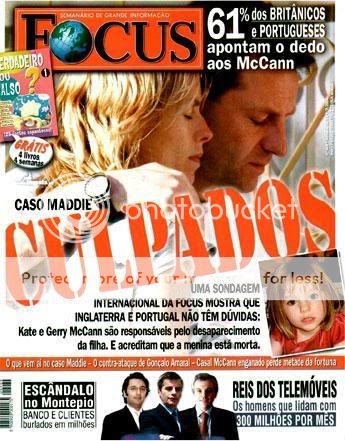Investigation: CM reveals images of the dogs’ work
Soft toy found by death smell
The cadaver odour on Madeleine McCann’s soft toy was proved when the sniffer dog was able to find it while hidden inside a closed cupboard.
The process of the toy’s marking is demonstrated by the images from the investigation’s videos that are published by Correio da Manhã, as well as the moment when the springer spaniel that is trained to detect the smell of death, changes its behaviour next to a piece of Kate’s clothing.
The cadaver odour on the soft toy was marked inside the residence that was being occupied by the McCanns in July 2007, but the experts repeated the diligence in a scenario outside the house, where the dog, ‘Eddie’, gave signal again.
Confronted with the indicia that resulted from the inspection done by the dogs, which are widely used in the United Kingdom – English expert Martin Grime asserts that in over two hundred searches, the sniffer dogs have never marked a false positive – the Polícia Judiciária questioned Kate and Gerry and made them arguidos. The authorities were forced to admit a possible involvement of the McCann couple in their daughter’s disappearance and to confront them with elements that could result in incrimination.
Kate McCann, who after Maddie’s disappearance was accompanied everywhere – and in a visible manner – of her daughter’s favourite toy, did not deny the fact that two pieces of her clothing and her daughter’s soft toy had been marked by the English dog that is trained to detect cadaver odour and justified the fact with her profession: she alleged that as a doctor at the Health Centre in Leicester she attended six death situations during the period immediately before her vacation time in Portugal.
Manipulated evidence
The soft toy was found on the bed where Maddie allegedly slept on the night that she went missing, but on the bed, no cadaver odour was detected, contrary to the soft toy. This fact led the Polícia Judiciária to believe that the crime scene was manipulated in order to better justify the abduction theory that is sustained by the McCanns and their friends.
In one of the investigation reports the inspectors write that the soft toy was placed on the bed’s end in a moment that was posterior to the disappearance. “There was an intentional modification, in an attempt to take advantage for the simulation of the abduction scenario”, the process reads.
McCann devalue dogs
Kate and Gerry McCann continue to defend that Madeleine McCann was abducted on the evening of the 3rd of May 2007, in the Algarve, and they devalue the indicia that was collected during the investigation – mainly the traces that were detected by the sniffer dogs.
“The frailty of these dogs was proved in a study that was carried out in the USA”, the McCanns stated in an interview to ‘Expresso’, reiterating the hope of finding their daughter alive: “We want to find her alive, but if she’s dead we want to know. There is nothing in the process to indicate that something bad has happened to her.”
Kate and Gerry say that they “firmly” believe that Maddie was abducted by a man and they criticise the former case coordinator, Gonçalo Amaral, who defends the homicide theory. “His behaviour has been a disgrace”, they said, considering that the success of his book is a case of “illicit enrichment”.
“Suing the McCanns is a possibility to consider” (Gonçalo Amaral, former coordinator of the Madeleine McCann case)
Correio da Manhã – How do you react to the McCanns’ statement that your behaviour is a disgrace?
Gonçalo Amaral – That happens in the sequence of a campaign, it’s normal for that hostility to exist. Concerning that type of accusations, they have to be pondered…
- Does that mean that you consider the possibility of suing the McCanns?
- Yes, it’s a possibility to consider.
- How do you interpret the fact that the McCanns devalue the dogs’ work?
- It’s a form of defence. To them, we are all incompetent, but that is not how the dogs are seen in the United Kingdom, where they are widely used and with success.
- The McCanns say that the English police are more experienced in abductions…
- They can present a formal complaint about their daughter’s abduction to the English police instead of using private detectives.
Details
200 searches – Expert Martin Grime asserts that in over 200 searches the sniffer dogs have never failed.
Vehicle – ‘Eddie’ and ‘Keela’, which are trained to detect the odour of human cadavers and blood, marked the car that was rented by the McCann couple among ten vehicles.
Robert Murat – The cars that were used by Murat, the first to become an arguido, were inspected by the dogs but nothing was detected.
Decisive – The investigation changed its course after the traces that were detected by the dogs.
Notes
16 months: Missing – Madeleine McCann disappeared 16 months ago from the Ocean Club resort, in Praia da Luz, Algarve, where she was spending holidays with her parents and her twin siblings. It was on the evening of May 3, 2007.
Detectives: 1.2 million – Kate and Gerry McCann, Maddie’s parents, guarantee that they have already spent 1.2 million euros from the FindMadeleine Fund, with the private investigation into their daughter’s disappearance.
Investigation: Case archived – In July, the Public Ministry archived the investigation into Maddie’s disappearance. The abduction theory was dismissed and homicide was pointed out as more likely.
source: Correio da Manhã, 07.09.2008 (http://www.correiomanha.pt/Noticia....ontentid=1927CC62-D478-40BF-BB91-D661A6ED2A11)
Copied from: http://helpmadeleine.proboards79.com/index.cgi?board=general&action=display&thread=1482&page=12 #170
Soft toy found by death smell
The cadaver odour on Madeleine McCann’s soft toy was proved when the sniffer dog was able to find it while hidden inside a closed cupboard.
The process of the toy’s marking is demonstrated by the images from the investigation’s videos that are published by Correio da Manhã, as well as the moment when the springer spaniel that is trained to detect the smell of death, changes its behaviour next to a piece of Kate’s clothing.
The cadaver odour on the soft toy was marked inside the residence that was being occupied by the McCanns in July 2007, but the experts repeated the diligence in a scenario outside the house, where the dog, ‘Eddie’, gave signal again.
Confronted with the indicia that resulted from the inspection done by the dogs, which are widely used in the United Kingdom – English expert Martin Grime asserts that in over two hundred searches, the sniffer dogs have never marked a false positive – the Polícia Judiciária questioned Kate and Gerry and made them arguidos. The authorities were forced to admit a possible involvement of the McCann couple in their daughter’s disappearance and to confront them with elements that could result in incrimination.
Kate McCann, who after Maddie’s disappearance was accompanied everywhere – and in a visible manner – of her daughter’s favourite toy, did not deny the fact that two pieces of her clothing and her daughter’s soft toy had been marked by the English dog that is trained to detect cadaver odour and justified the fact with her profession: she alleged that as a doctor at the Health Centre in Leicester she attended six death situations during the period immediately before her vacation time in Portugal.
Manipulated evidence
The soft toy was found on the bed where Maddie allegedly slept on the night that she went missing, but on the bed, no cadaver odour was detected, contrary to the soft toy. This fact led the Polícia Judiciária to believe that the crime scene was manipulated in order to better justify the abduction theory that is sustained by the McCanns and their friends.
In one of the investigation reports the inspectors write that the soft toy was placed on the bed’s end in a moment that was posterior to the disappearance. “There was an intentional modification, in an attempt to take advantage for the simulation of the abduction scenario”, the process reads.
McCann devalue dogs
Kate and Gerry McCann continue to defend that Madeleine McCann was abducted on the evening of the 3rd of May 2007, in the Algarve, and they devalue the indicia that was collected during the investigation – mainly the traces that were detected by the sniffer dogs.
“The frailty of these dogs was proved in a study that was carried out in the USA”, the McCanns stated in an interview to ‘Expresso’, reiterating the hope of finding their daughter alive: “We want to find her alive, but if she’s dead we want to know. There is nothing in the process to indicate that something bad has happened to her.”
Kate and Gerry say that they “firmly” believe that Maddie was abducted by a man and they criticise the former case coordinator, Gonçalo Amaral, who defends the homicide theory. “His behaviour has been a disgrace”, they said, considering that the success of his book is a case of “illicit enrichment”.
“Suing the McCanns is a possibility to consider” (Gonçalo Amaral, former coordinator of the Madeleine McCann case)
Correio da Manhã – How do you react to the McCanns’ statement that your behaviour is a disgrace?
Gonçalo Amaral – That happens in the sequence of a campaign, it’s normal for that hostility to exist. Concerning that type of accusations, they have to be pondered…
- Does that mean that you consider the possibility of suing the McCanns?
- Yes, it’s a possibility to consider.
- How do you interpret the fact that the McCanns devalue the dogs’ work?
- It’s a form of defence. To them, we are all incompetent, but that is not how the dogs are seen in the United Kingdom, where they are widely used and with success.
- The McCanns say that the English police are more experienced in abductions…
- They can present a formal complaint about their daughter’s abduction to the English police instead of using private detectives.
Details
200 searches – Expert Martin Grime asserts that in over 200 searches the sniffer dogs have never failed.
Vehicle – ‘Eddie’ and ‘Keela’, which are trained to detect the odour of human cadavers and blood, marked the car that was rented by the McCann couple among ten vehicles.
Robert Murat – The cars that were used by Murat, the first to become an arguido, were inspected by the dogs but nothing was detected.
Decisive – The investigation changed its course after the traces that were detected by the dogs.
Notes
16 months: Missing – Madeleine McCann disappeared 16 months ago from the Ocean Club resort, in Praia da Luz, Algarve, where she was spending holidays with her parents and her twin siblings. It was on the evening of May 3, 2007.
Detectives: 1.2 million – Kate and Gerry McCann, Maddie’s parents, guarantee that they have already spent 1.2 million euros from the FindMadeleine Fund, with the private investigation into their daughter’s disappearance.
Investigation: Case archived – In July, the Public Ministry archived the investigation into Maddie’s disappearance. The abduction theory was dismissed and homicide was pointed out as more likely.
source: Correio da Manhã, 07.09.2008 (http://www.correiomanha.pt/Noticia....ontentid=1927CC62-D478-40BF-BB91-D661A6ED2A11)
Copied from: http://helpmadeleine.proboards79.com/index.cgi?board=general&action=display&thread=1482&page=12 #170


